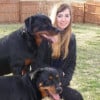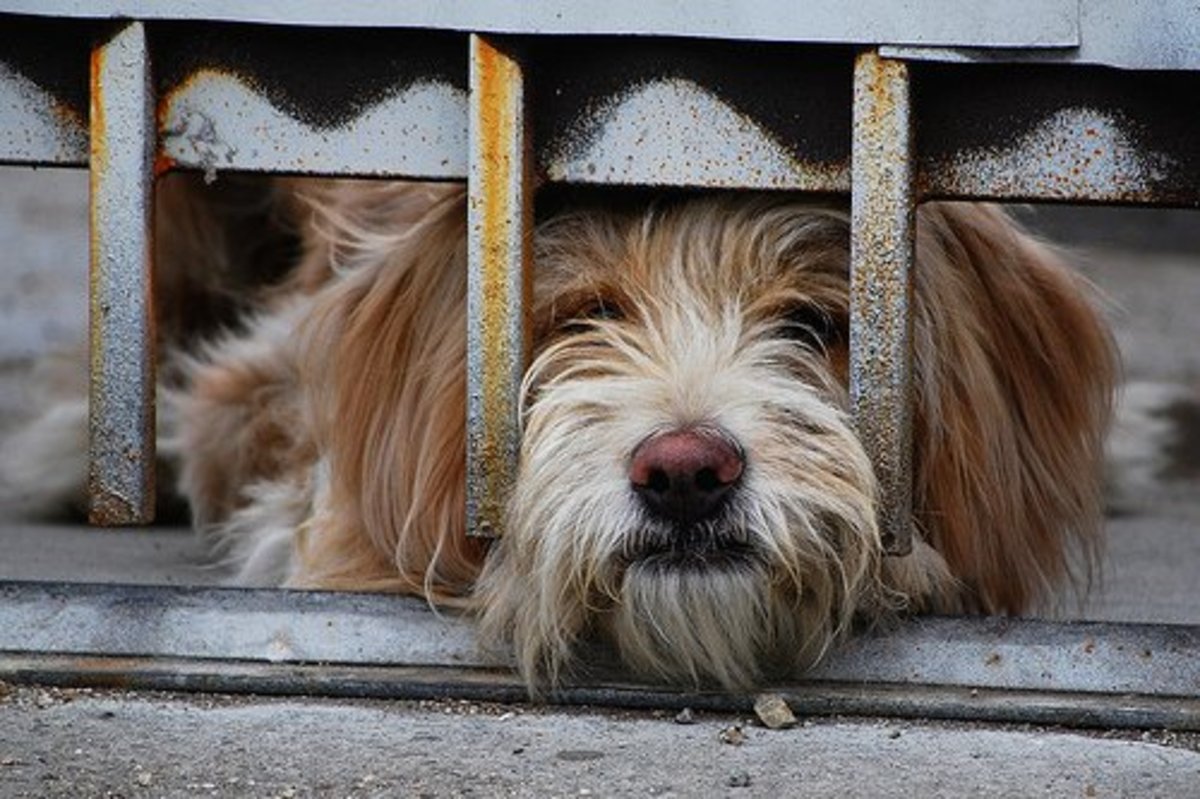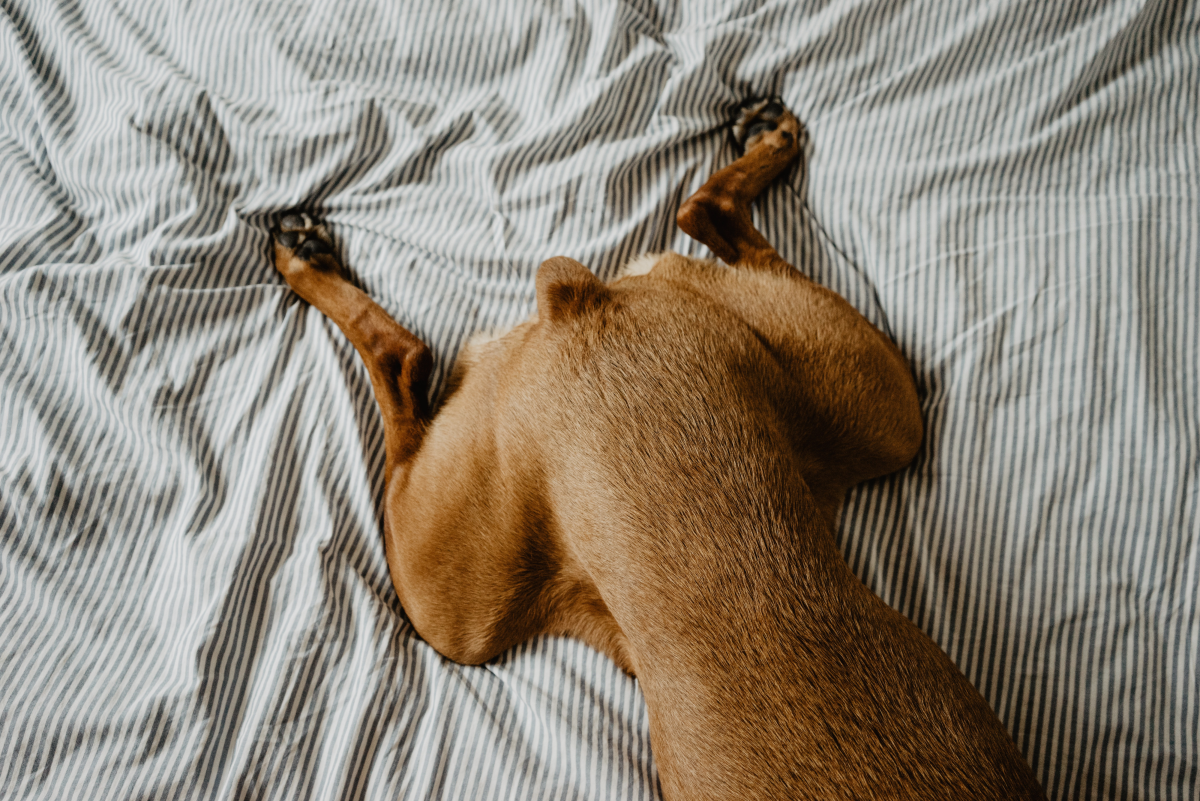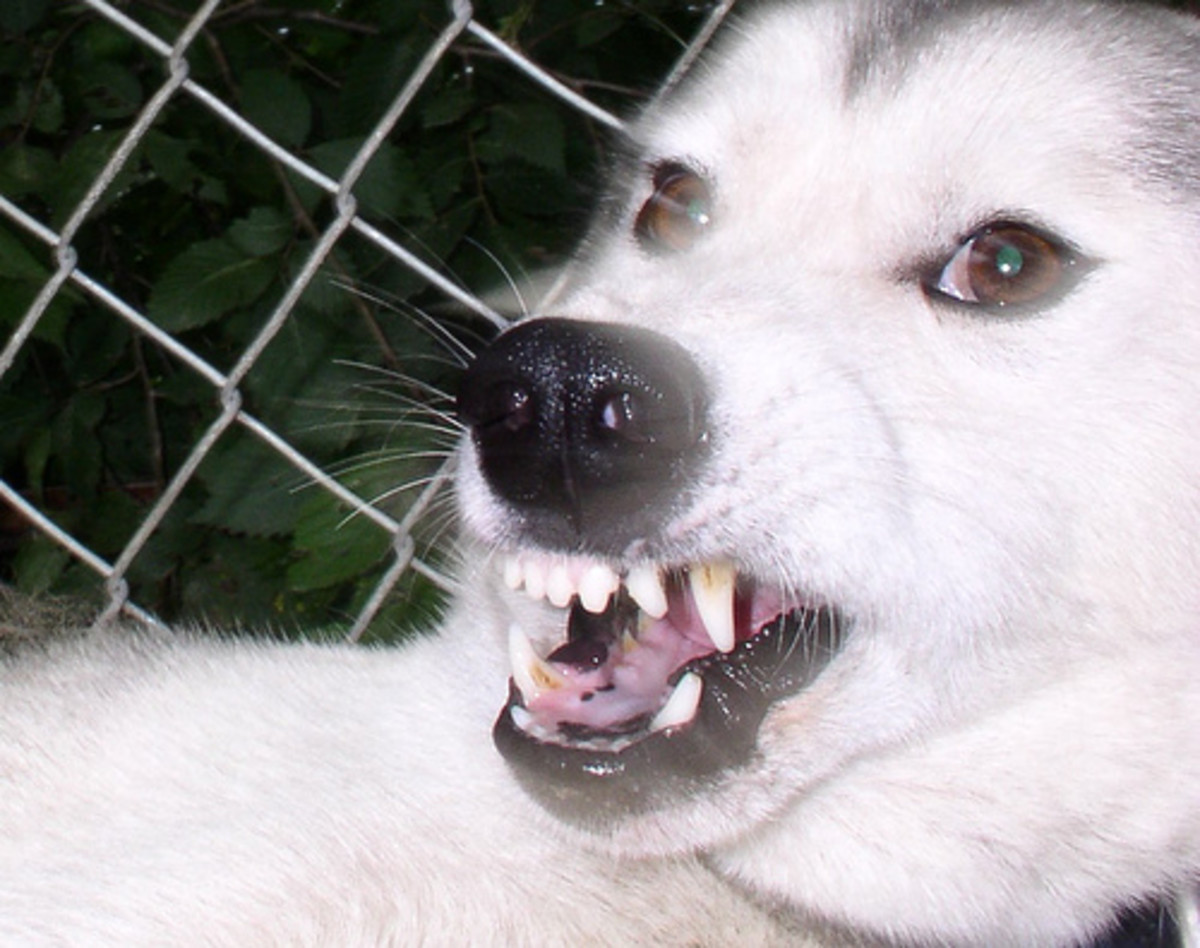How to Help a Dog Adjust to New Owners and Home

Dogs are quite routine-oriented animals that thrive on familiar surroundings. Adjusting to a new home is difficult enough, even when dogs move to a new home with their owners. There are indeed new sounds, new smells and new sights. Adjusting to a new home, and new owners on top of that, adds further challenges into the mix. These dogs are not only introduced into a totally new environment, but on top of that, they lack the reassurance of their owners which is often what aids these dogs the most in this transition.
Yet, there are many things that can help these dogs out. How well the dog adjusts to a new owner and new home will depend on a variety of factors. First and foremost, the dog's temperament and "baggage" may play a role. Some dogs are genetically geared to being more fearful of novel stimuli and take longer to adapt to new situations. A lot of it though may have to do though with previous experiences. Some dogs are more open to exploring new places and engaging with their environment because of positive experiences. They may have learned to trust people and are less likely to become intimidated. Often, these dogs have a history of being exposed to a variety of situations, people and other stimuli from early puppy hood and have been engaged in ongoing socialization for the rest of their lives.
On the other hand, dogs who haven't been deprived of social and environmental exposure may be more tentative in exploring their surroundings and are more likely to "close up" in their shell and become suspicious of others. These dogs have learned that shutting down, rather than exploring, keeps them safe from scary stimuli, and as such they will feel compelled to hide and go into avoidance. Some may even go into defensiveness if forced to interact.
Luckily, with time, these dogs eventually come out of their shell and will start warming up; however, there may be some steps new dog owners can take to help these dogs adjust and that will even benefit dogs who are more open to explore, as even with these dogs, new homes and new owners will eventually cause some stress. The next paragraph will feature some tips and steps to take to help dogs adjust into their new homes with their new owners.

How to Help a Dog Adjust to New Home and New Owners
There are many steps you can take to help your new dog adjust. Knowledge is power. If you are lucky to have the advantage of talking to the previous owners, they can give you a goldmine of information that can help the dog ease into the transition.The first tips apply to new dog owners who have this advantages.
Stick to the Dog's Routine
As mentioned, dogs are very routine oriented. They like to know what to expect as this gives them a sense of security. Try your best to stick to the routine the previous owners were implementing. This means, feed the dog at the same time, walk the dog at the same time, use the same commands the dog owners used, play the same games, give the dog the same toys, let the dog sleep in the same areas she was used to. Then, as the dog adjusts, you can create new routines, but for the very first days, it helps to just stick to the routine the dog was used to, to help her adjust.
Stick to the Same Food
Dogs tend to not do well with abrupt dietary changes. It's best if you could stick with the food the previous owners were feeding so that he wont' get an upset stomach. Then in the near future, if you really want to change food, you can always transition to a new food over the course of several days. Most bags of dog food offer guidelines on how to transition correctly. Most of them suggest to gradually add the new food to the old, gradually increasing the amount of the new food over the course of several days until it replaces it completely. However, if you really need to change food right away, you can always start the dog on a bland diet of chicken and rice and gradually add the new kibble as you would add it to the old kibble.
Invest in Calming Aids
There are some products on the market that can help stressed dogs calm down. I am big on using DAP diffusers such as Comfort Zone. These diffusers are plugged in the room where the dog will spend most of the time and are meant to calm down stressed dogs and help them adjust to changes in their environment. I know of some good breeders that suggest using these when people adopt their puppies from them and bring them into their new homes. Additionally, there are other over-the-counter calming aids containing L-theanine such as calming chews made by Pet Naturals of Vermont. And let'snot forget calming music, such as the lovely notes made just for canines "Through a Dog's Ears."
Don't Give the Run of the House
A big home full of stimuli can be scary to a new dog. Instead of letting your new dog venture in the home by giving him the full run of the house, let your new dog stay in the quietest room where not much is going on. That means away from the noisy dishwasher, away from windows and doors if you live in a noisy neighborhood and away from the living room where your family reunites and comes and goes. Too much stimulation may overwhelm your new dog. Provide him with a soft place to sleep surrounded by toys and his food and water bowl. Stay with the dog in this room to reassure him he's not alone. Some dogs can get very destructive if they are left alone when they're adjusting. There's nothing worse than for a dog to feel completely alone in a new home and unfamiliar surroundings.
Keep a Low Profile
While it is scary for a new dog to be left alone in a new home, it's also true that some dogs may feel fearful of you. This is a time to keep a low profile. Walk and move slower than you normally do. Present yourself sitting on the couch versus looming over the dog standing up. Talk in a calm, quiet tone of voice. Some dogs may actually do better if you don't talk to them or touch them at all. Let them approach you when they are ready, this will raise their level of trust. If feasible, coordinate the new dog's arrival with a week-end so you'll have plenty of time to invest in getting your new dog adjusted to your home and lifestyle.
Introduce other Pets/People Later
Bombarding your new dog with too much novelty will cause stress. If you have other pets or other dogs, best to introduce them until your new dog has had some time to adapt. Same goes with introducing new people. As exciting as it is to have a new dog, don't invite your relatives, neighbors and friends over as of yet. Give your dog time to adapt to the many novelties in your home.
Be Understanding
The behaviors you witness during the adjustment period may vary. Some dogs will have housebreaking issues, others will bark, whine and pace, and some will try to avoid you or even try to escape. Depending on your new dog's personality, he may take the stress on you (by acting defensively), on your home (by chewing items and scratching doors) or on himself (by licking himself or even getting sick.) These behaviors are often temporary and simply a manifestation of stress. It's good to be forgiving and understanding for at least the first 2 weeks. Scolding the new dog for these behaviors will only cause more stress, so please be understanding. In some cases, the dog may behave very well during the adjustment period and then will start showing some negative behaviors later. Some refer to this as the "honeymoon period." You can train always train your dog alternate, better behaviors through differential reinforcement.
Maintain an Exercise Routine
Walking a dog can be a good way to relieve stress in some cases. This may vary from dog to dog of course. You will see what impact it has on your new dog. Does he appear more stressed after the walk or calmer? Does the walk increase fear or diminish it? Does your new dog explore on walks or does he startle at every noise and pull to go back home? You'll be the judge to determine if walks help reduce stress or not.
Enticing Supplements
Some new dogs may become so stressed in their new homes, they'll refuse their food. This is a time you may want to add some enticing supplements such as a little bit of warm chicken broth or a few teaspoons of canned food, preferably made from the same company that makes the dry food. If your new dog refuses food for more than 2 days, it's best to see a vet. In some cases, new dogs may even develop digestive upset and this may manifest through vomiting and or stress diarrhea. Contact your vet if this lasts longer than a day.
Fortunately, most dogs adapt fairly well to their new environments after the adjustment period. Many new dog owners report that their dog’s true personality only came out several weeks after adoption. Be patient and understanding during the adjustment period, and soon you may have a dog that acts as if he lived with you his entire life.
Alexadry© all rights reserved, do not copy.
For further reading
- Signs a Dog is not Enjoying Petting and is About to ...
What are some signs a dog is about to bite? Learn how to avoid putting yourself at risk, when dogs should not be pet and the warning signs of an impending dog bite. - How to Reduce Stress in Dogs
How can you reduce stress in dogs and help them cope with it better? This article will provide a few options that may help your dog. - Signs of Dog Separation Anxiety
Many dog owners assume their dogs suffer from separation anxiety when they are really just a bit upset. There are particular, distinct signs of dog separation anxiety dog owners must be aware of. - Signs a Dog is About to Bite
What signs suggest a dog is about to bite? Read about the evident-and not-so evident- signs of an impending bite. - How to Tell if as Dog is Marking or Urinating
Is my dog marking or urinating? Why is my dog urinating in my home? Learn to recognize potential differences between physiological urination and marking with a purpose.









